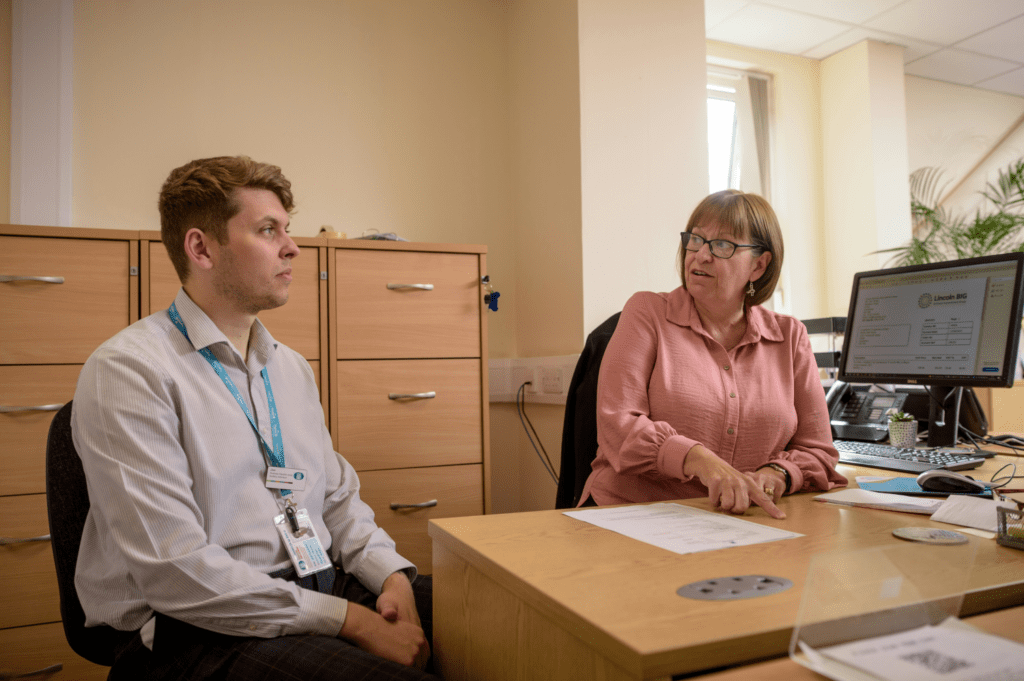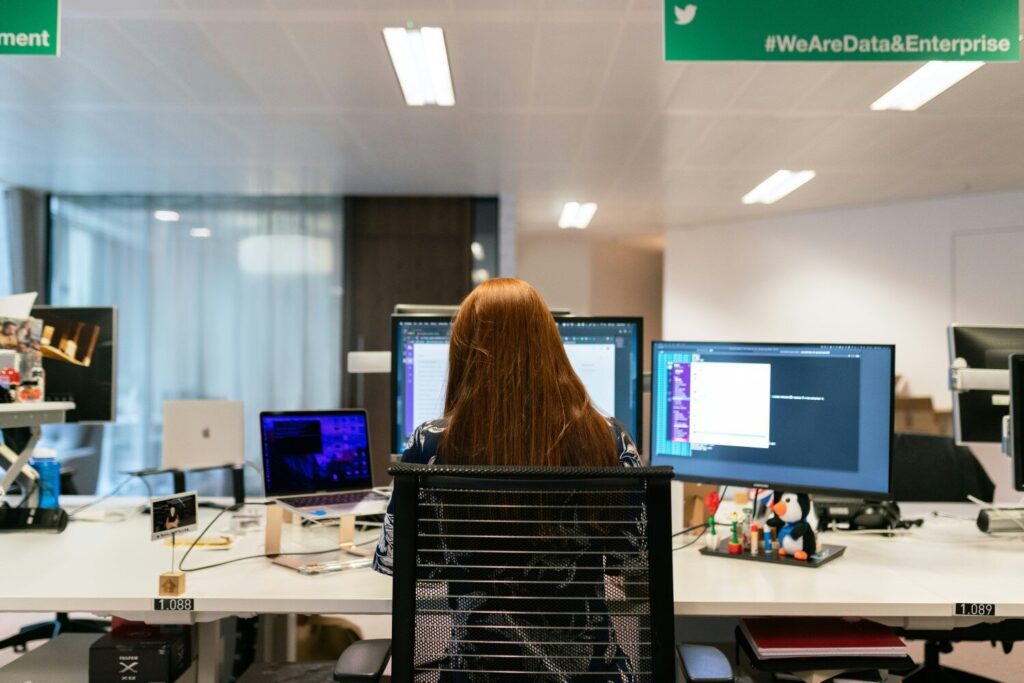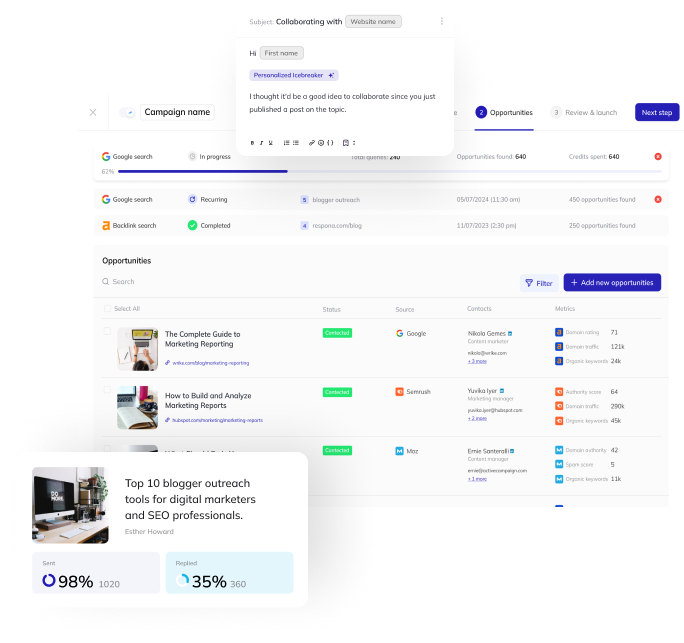Citation link building helps you get discovered on local searches.
So, when someone searches “X near me”, and your business is the first thing that comes up on Google maps, they’re probably going to end up coming to your door.
In this article, we’ll break down:
- What are local citations and their benefits
- Types of local citations
- How to find and capitalize on citation building opportunities
Let’s get started
Link building cheat sheet
What are Local Citations?
Citations are mentions of your business on directories like Google My Business, Yep, Trip-advisor, etc.
But they aren’t limited to those kinds of websites – a local SEO citation can come from any social media platform or even a blog in your niche or local area.
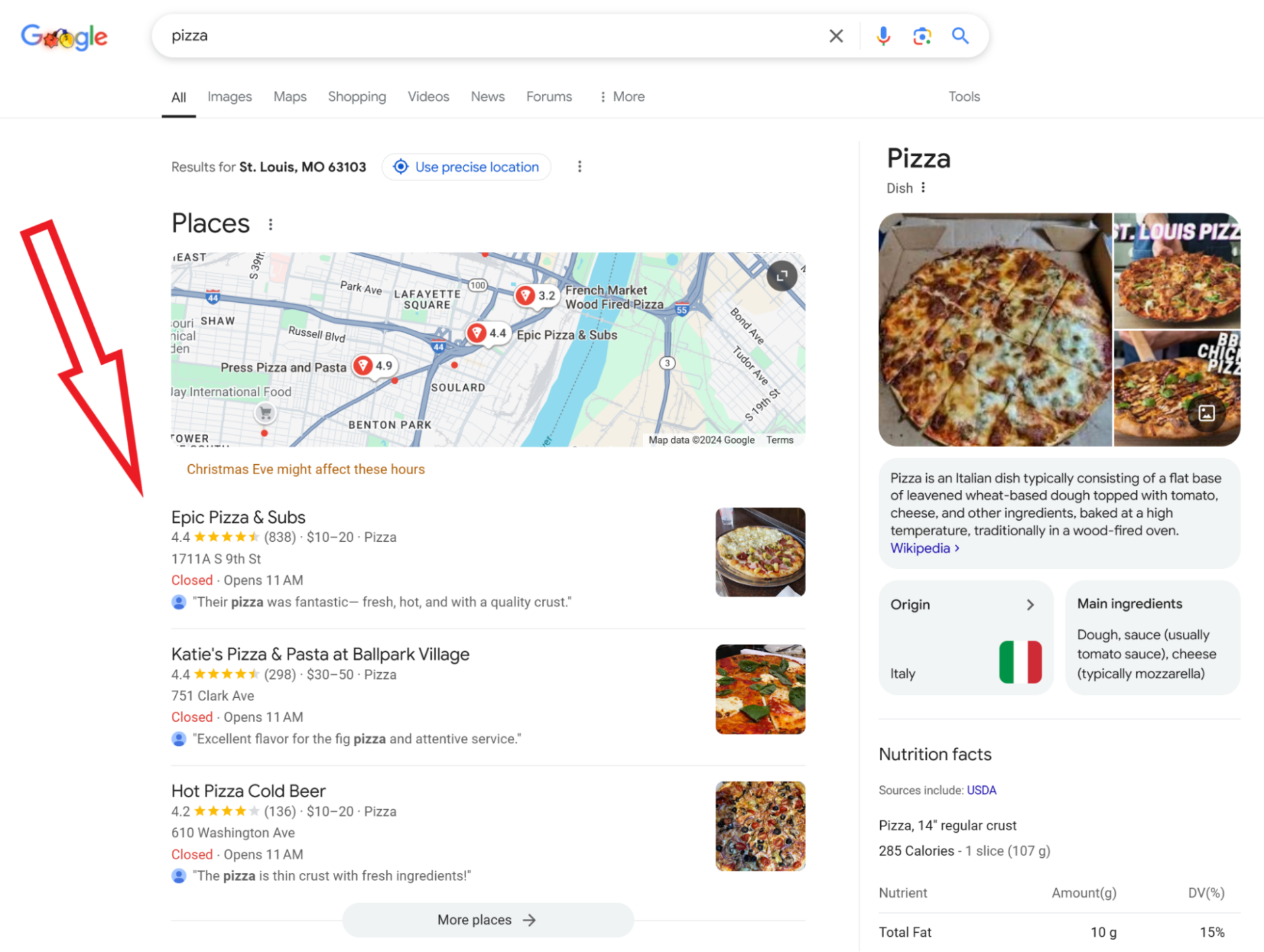
Local citations bring you hot leads that are already interested to learn your open hours and location.
But that’s not all – citations also include backlinks, which, in turn, carry local search ranking signals (looking at you, link equity) that help your site appear higher on local search result pages.
This especially applies to local searches.
What Does a Citation Include?
The core of any citation is your NAP.
Meaning name, address, and phone number.
However, there are some optional elements you might want to consider (if the chosen directory allows it):
- Website URL
- Business description highlighting your unique selling points and target audience
- Business category
- Hours of operation including any variations for holidays or special events.
- Payment methods
- Photos and videos
- Social media profiles
- User reviews
All of these contribute to your website’s SEO (both local and global), which brings us to the next section.
Citation Link Building Benefits
Businesses that benefit most from citations are, of course, local stores and agencies since they heavily rely on foot traffic from Google maps.
Not only do citations bring targeted traffic, but they also help guide your user throughout their journey from the awareness stage all the way to purchase.
By checking your listing, they can learn all they need to know to decide for (or against) buying from you.
Which is why it’s crucial to always ensure your NAP is up-to-date and all additional elements such as user reviews and images are positive and look good.
But this much is obvious – what about SEO?
Do local citations help you rank higher like “normal” backlinks?
It depends on where it’s published on.
A lot of major business directories like The Yellow Pages add the “nofollow” attribute to their citation links:
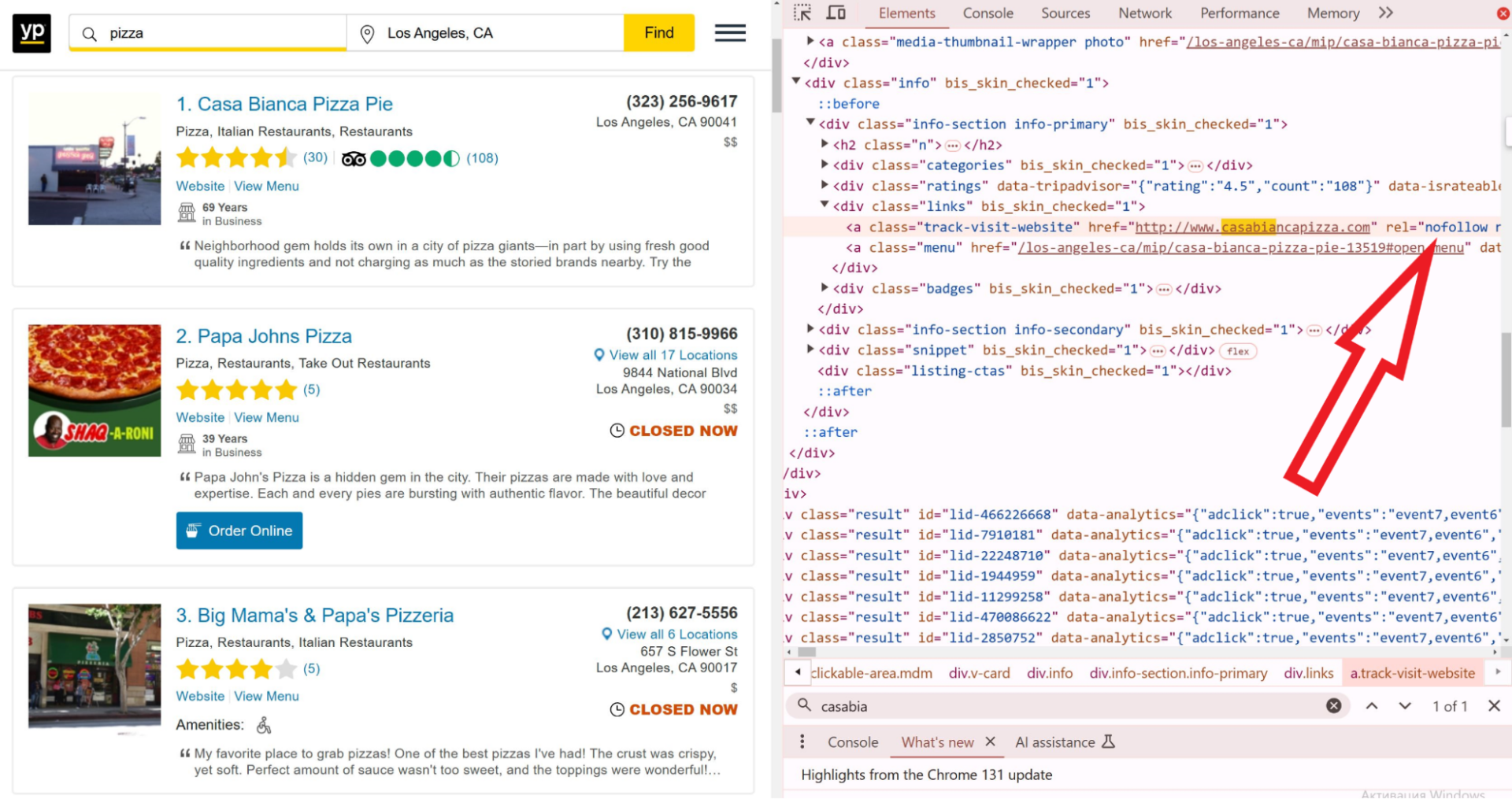
Google ignores these links so they don’t pass any link equity, and don’t help improve your SERP rankings.
To check whether your citation link is nofollow or not, right click anywhere on the page, hit “Inspect”, and find your URL in the page code with ctrl-f.
If the tag is present, the link doesn’t have SEO value (besides helping customers find you).
If the tag is “dofollow”, or absent entirely, the link passes local ranking signals – as well as global.
Not all directories offer dofollow links, so evaluate on a case-by-case basis.
Structured vs Unstructured Citations
Everything that has been said above applies to structured citations.
A structured citation has your NAP along with additional elements.
An unstructured citation, however, is just a link back to your site.
It doesn’t even necessarily have to be from a business directory.
Like this mention of Respona on Powered By Search that is a website run by a content marketing agency.
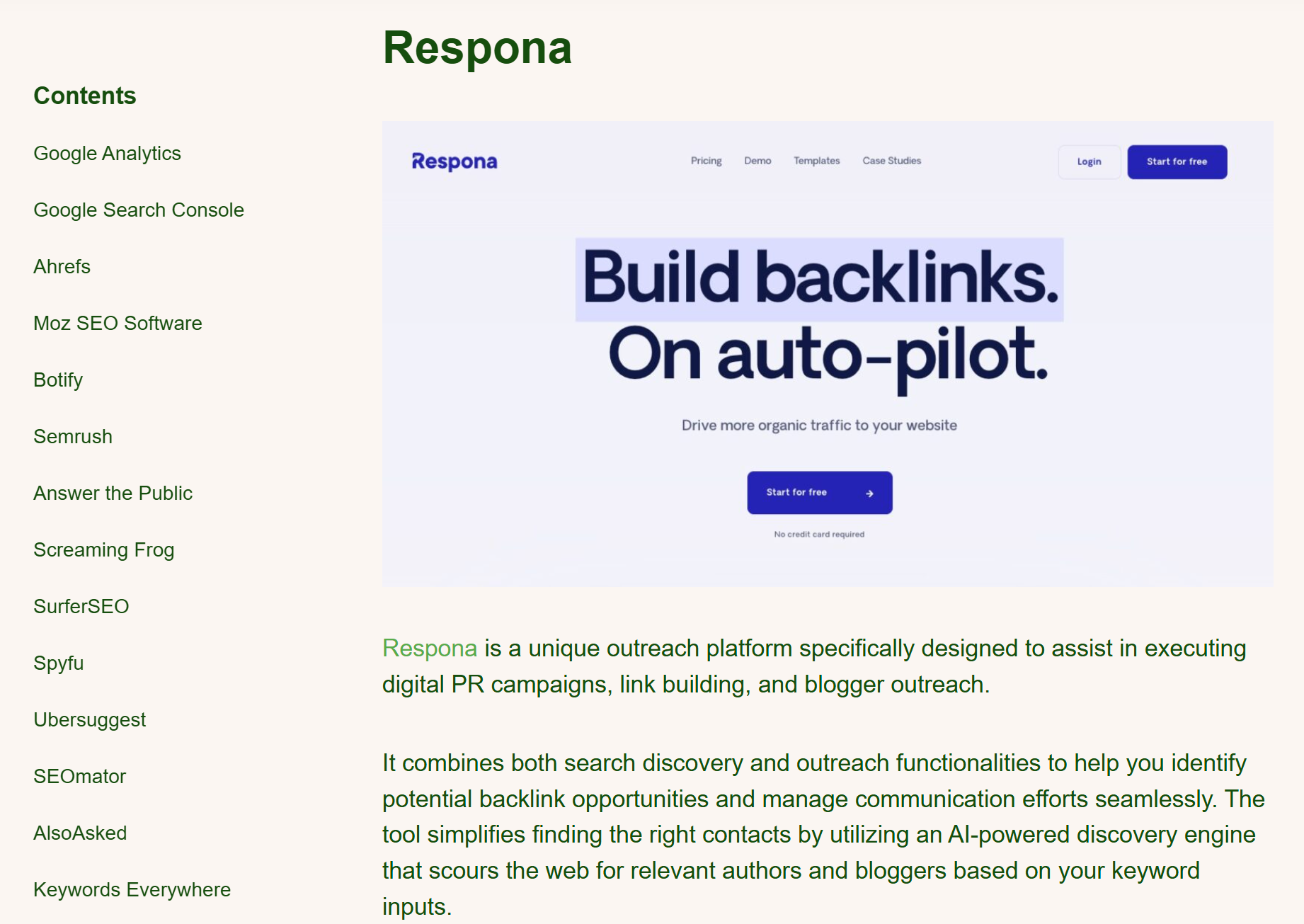
The link is on a listicle with 20 B2B SaaS SEO tools.
Despite the website not being a dedicated business directory, this qualifies as an unstructured citation.
It not only educates the reader about our tool, but includes a high quality dofollow backlink that helps with rankings.
How to Get Local Citations?
So, more citations = more traffic, and even SEO rankings.
But how do you actually get these citations?’
Let’s find out.
Register on Local Directories
The first step to getting local citations is to claim your listings on giants such as:
- Google Business Profile
- Yelp
- Yellow Pages
- Bing Places for Business
- Apple Maps
This is free, and requires nothing in return – other than a little bit of your time.
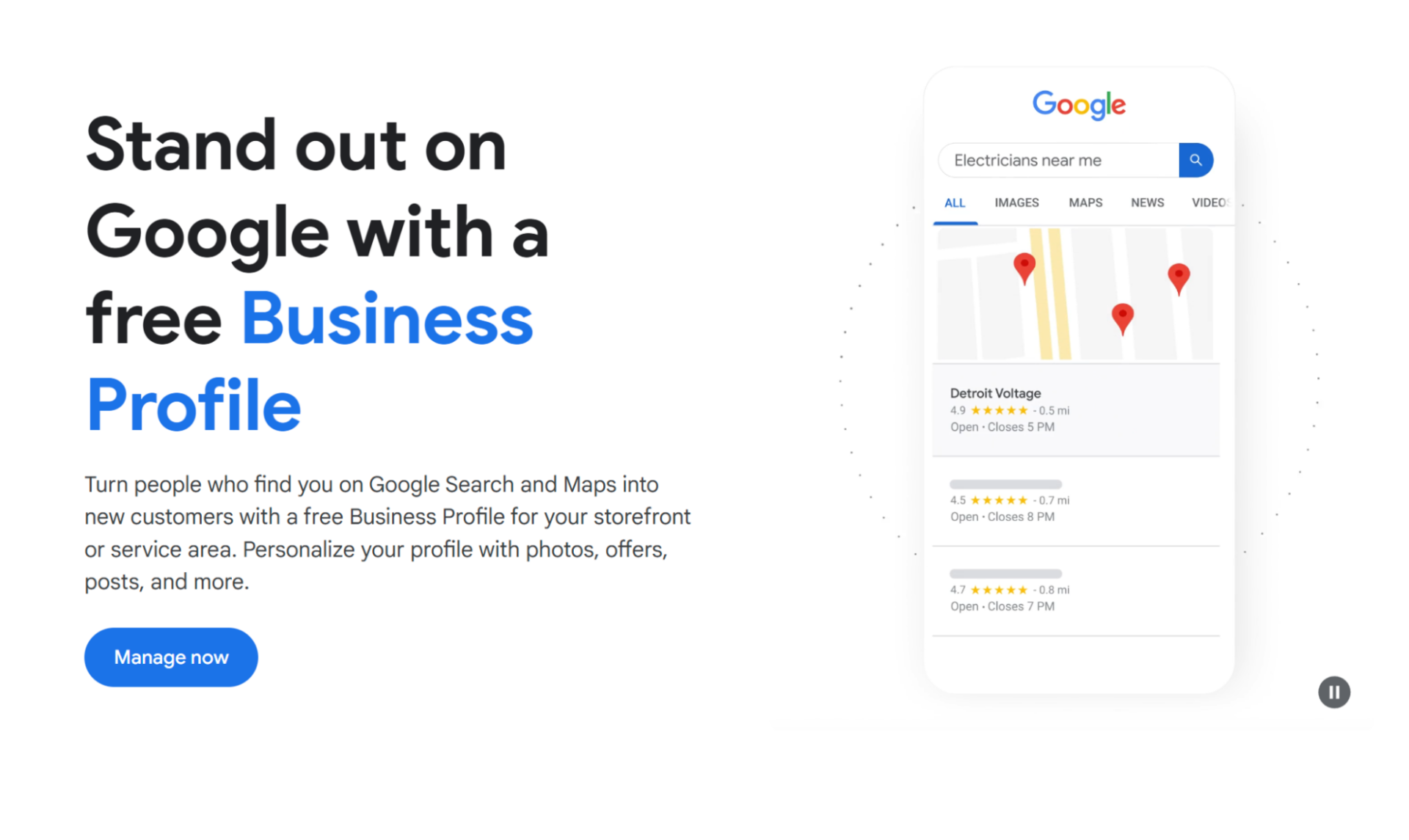
Sometimes, if there’s enough information available about your business online, Google can create a business listing for you automatically.
However, it won’t do nearly as good of a job as you so take the time to find and update existing citations with relevant information.
Beyond the obvious giants, you’ll have to seek out other local or niche directories.
If you’re not sure where to start, you can use the inurl: search operator with your TLD (top-level-domain) to narrow search results down to your country only.
For example, if we were running a pizza place in Canada, we could search for Canadian restaurant directories.
Here’s what it would look like in Google:
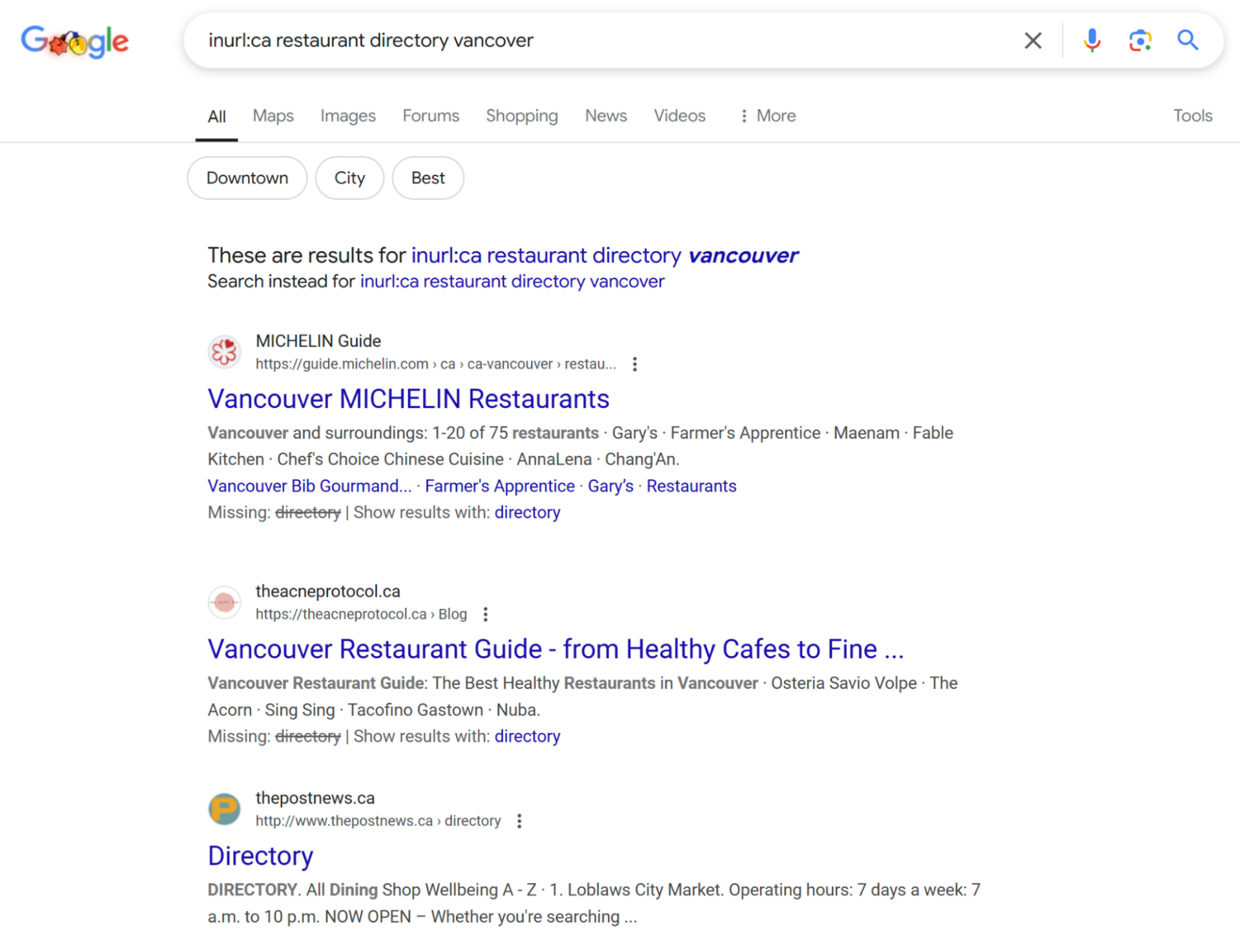
You can add your city to the search string for better accuracy.
Encourage Reviews and Social Mentions
Positive reviews make for some of the strongest citations for an obvious reason.
They not only provide social proof, building trust and credibility with potential customers, but they also contribute to your online visibility.

When customers leave reviews on platforms like Google, Yelp, and Facebook, or mention your business on social media, it creates valuable content that can be indexed by search engines.
Here are some tips for getting existing users to leave positive reviews:
- Make it easy – provide direct links to your review pages on your website, in email newsletters, and even as QR codes on receipts.
- Politely request feedback from satisfied customers at the point of sale or after a service is completed. A simple “If you enjoyed your experience, we’d appreciate it if you could leave us a review online” can go a long way.
- Offer incentives for providing feedback, like a gift card or a small discount on their next purchase.
- Respond to reviews whether the feedback is positive or negative to demonstrate that you value customer input.
- Run social media contests.
- Send automated follow-up emails to customers after a purchase or service is completed, thanking them for their business and inviting them to leave a review.
- Showcase positive reviews on your website and social media profiles to provide social proof and encourages other customers to share their positive experiences as well.
Optimize for Local Keywords
Now, this tip doesn’t necessarily apply to getting more citations, but it helps you achieve the same goal – rank high in Google, and drive more organic traffic.
When a page links to you with a specific keyword in the anchor text, it helps Google associate your page with that keyword.
So, for example, we have this guest posting guide.
Its links have some variation of “guest posting” in the anchor text:
- Guest blogging
- Guest posting outreach
- Guest post publishing
- And so on
Google sees this, so the article might show up for query with “Guest blogging” or “how to publish a guest post” – even if these keywords aren’t mentioned anywhere on the page.
The same logic applies to local keywords.
If you have a lot of links with anchors like “Birmingham Attorney”, it will affect your rankings for that keyword.
Local keywords typically have much less search volume and KD score (keyword difficulty) and are easier to rank for as a result – especially combined with a few relevant links.
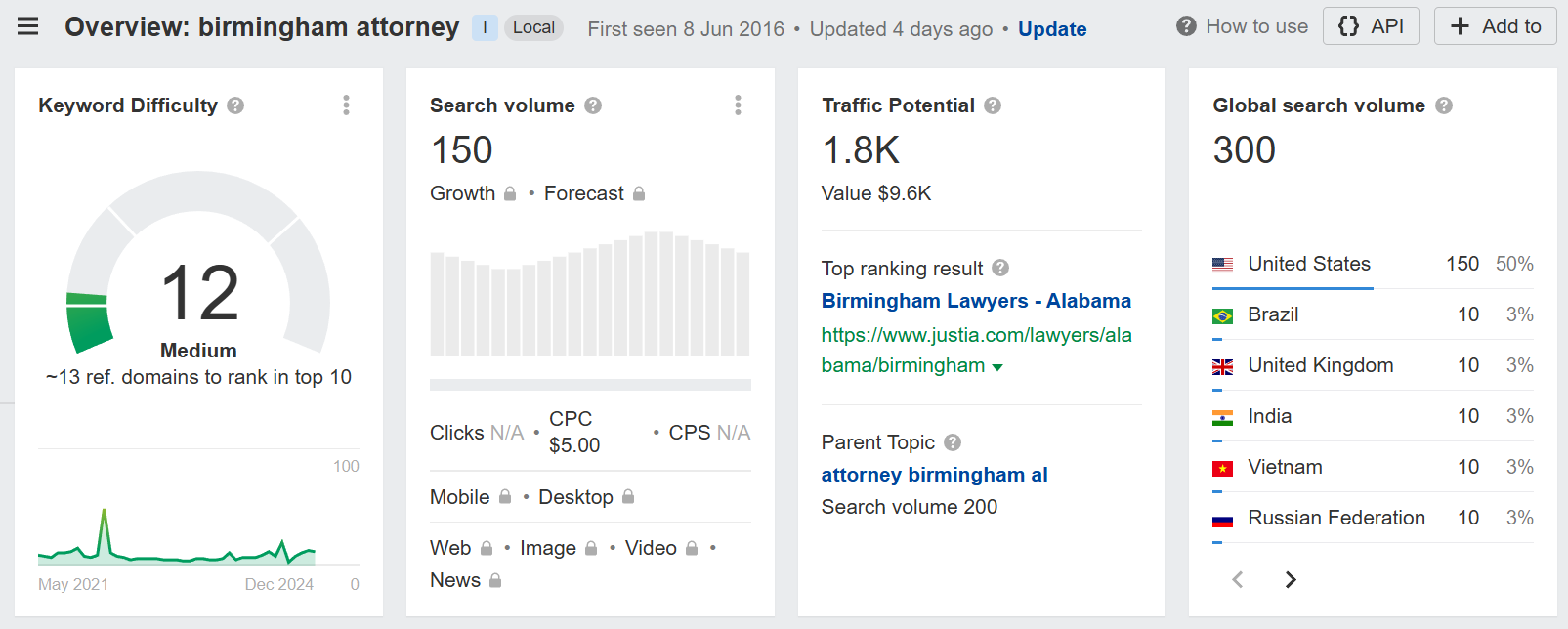
You can use tools like Ahrefs or Semrush for keyword research.
Blogger Outreach
Now, we’ve extensively covered strategies for building citations from a local business directory.
However, unstructured citations are just as valuable (if not more) because of a much bigger pool of websites you can get them from.
Seeing how they don’t have to come from actual directories.
In this section, we’ll walk you through how to find and secure local citation building opportunities on relevant blogs in your niche.
To speed things up, we’ll be using our own tool, Respona.
Open Respona and create a new campaign. Pick the blogger outreach template.
It’s tailor-made specifically for getting in touch with bloggers using advanced search operators, and comes with a pre-built email template.
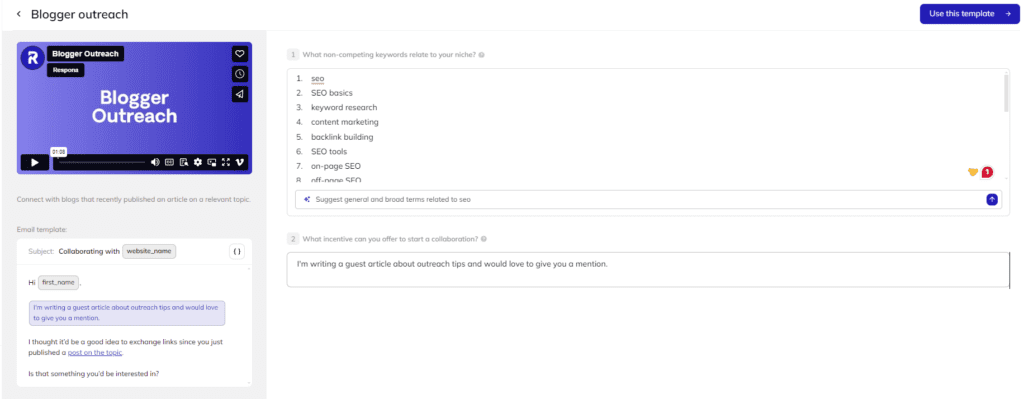
Enter your main keywords and what you’re offering in return for giving you a citation (like an indirect link back).
Use Respona’s AI to help you come up with more keywords – both local and global. .
Click “Use this template” to start editing.
Step 1 – Prepare a Sequence
Respona has a template, but we highly encourage you to make it your own.
In the first email, say why they should reply and what they get out of it (a link, a guest post, etc.).
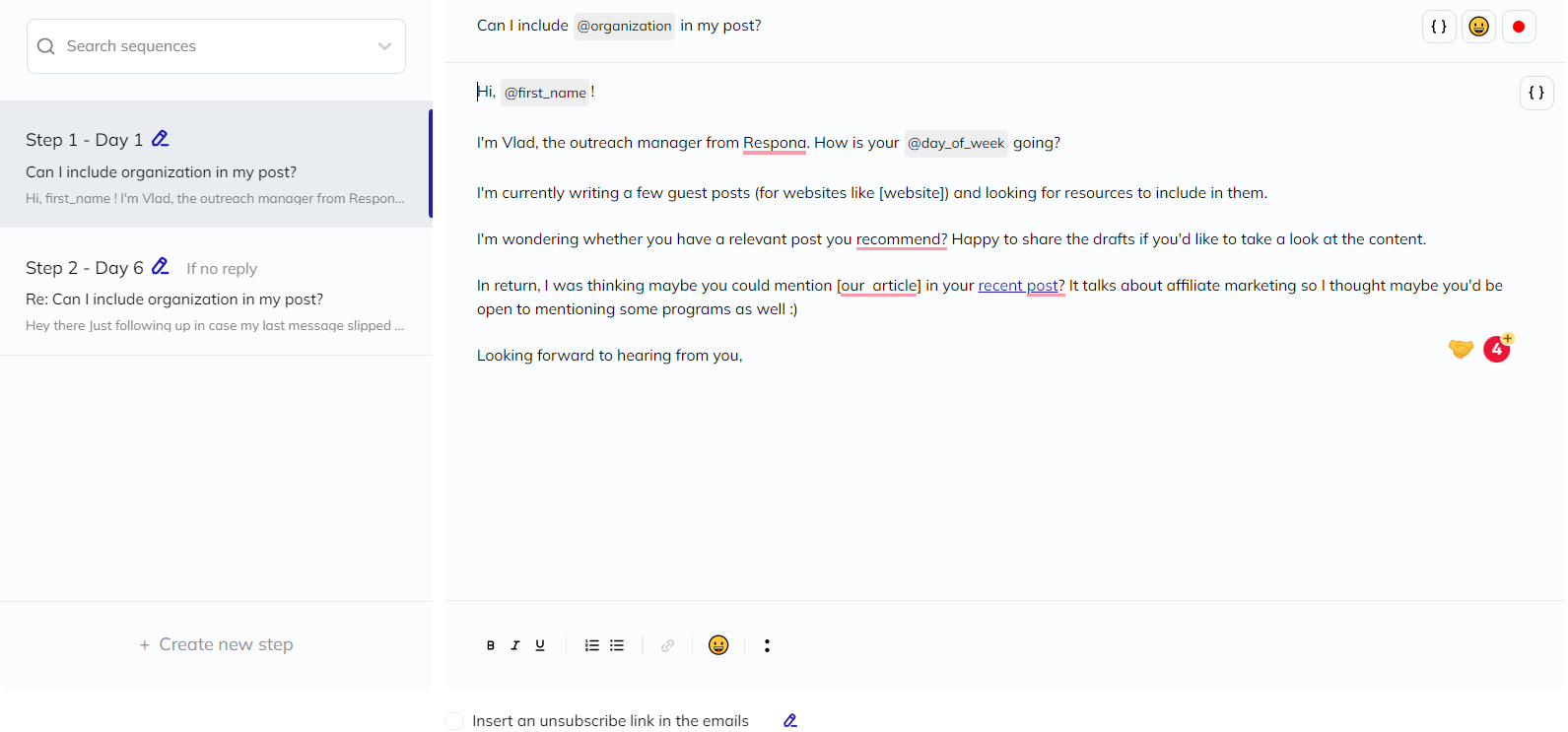
We also recommend using an AI icebreaker or another AI variable.
It will create unique personalizations for every citation opportunity in your backlink building campaign for you.
As for your follow-up, keep it short and send it at least a few days after your initial pitch.
Before you move on to the next step, make sure to add an unsubscribe link, and check your email for spam words.
Move to the next step once your email sequence is ready.
Step 2 – Find Opportunities
Respona finds relevant blogs for you on auto-pilot using the same inurl: search operator we mentioned above.
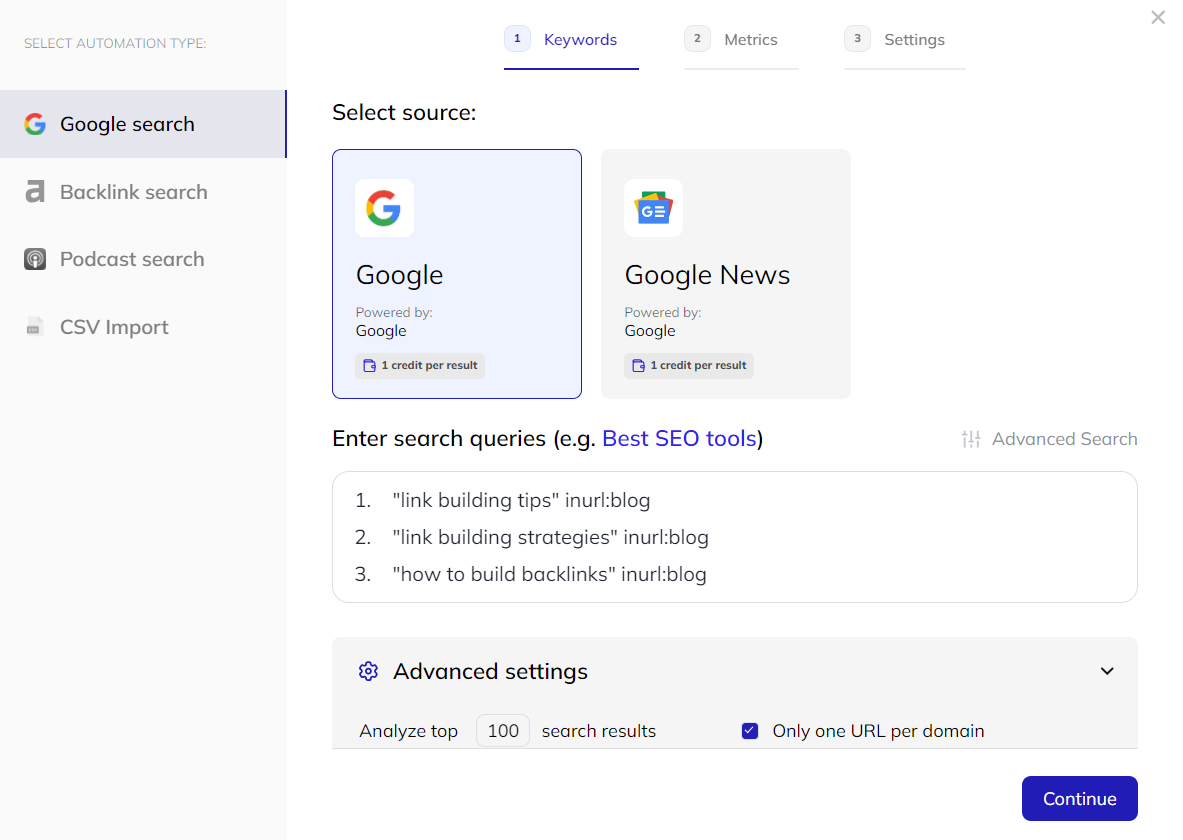
Here, you can change your search strings, or hover your mouse over any of the queries to preview the results in Google.
Next, click “Continue” to add filters.
Continue again to review the contact finder settings.
Respona finds website owners, writers, SEO people, and marketers by default.
But you’re more than welcome to tailor it to your specific needs.
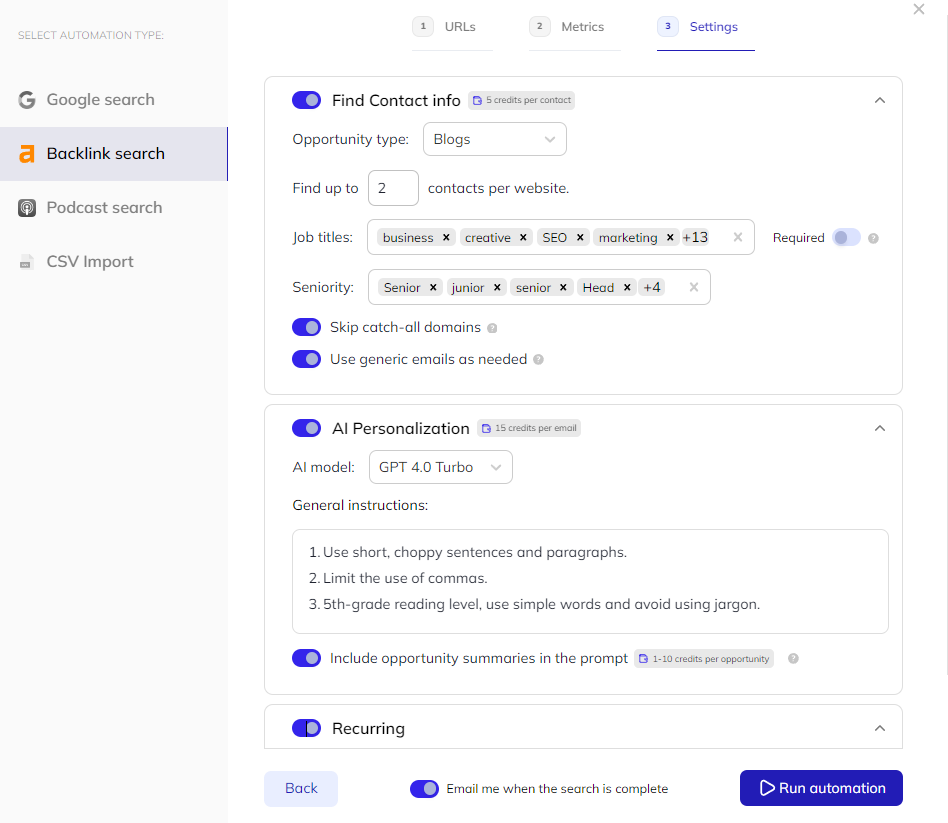
In the section just below, you can give the AI more instructions to be more accurate.
This can include general tone instructions as well as specific examples of your previous personalizations.
We recommend using real-world examples to ensure higher quality outputs.
Turn on recurring search to re-run your campaign at a set interval and automatically add new blogs to your list.
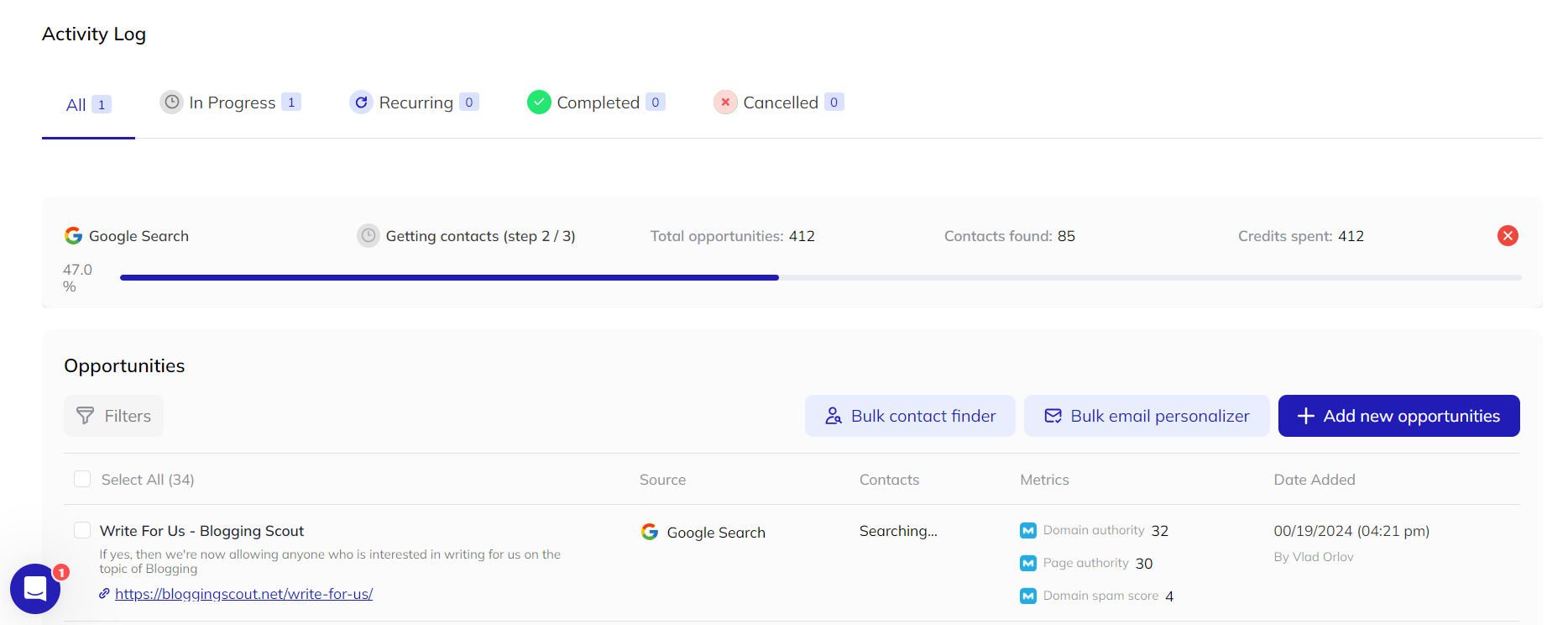
Click “Run automation.”
Respona will then find blogs, contact info, and personalize your emails completely automatically.
You’ll get updates and an email when it’s done.
The last step is to Review & Launch your campaign.
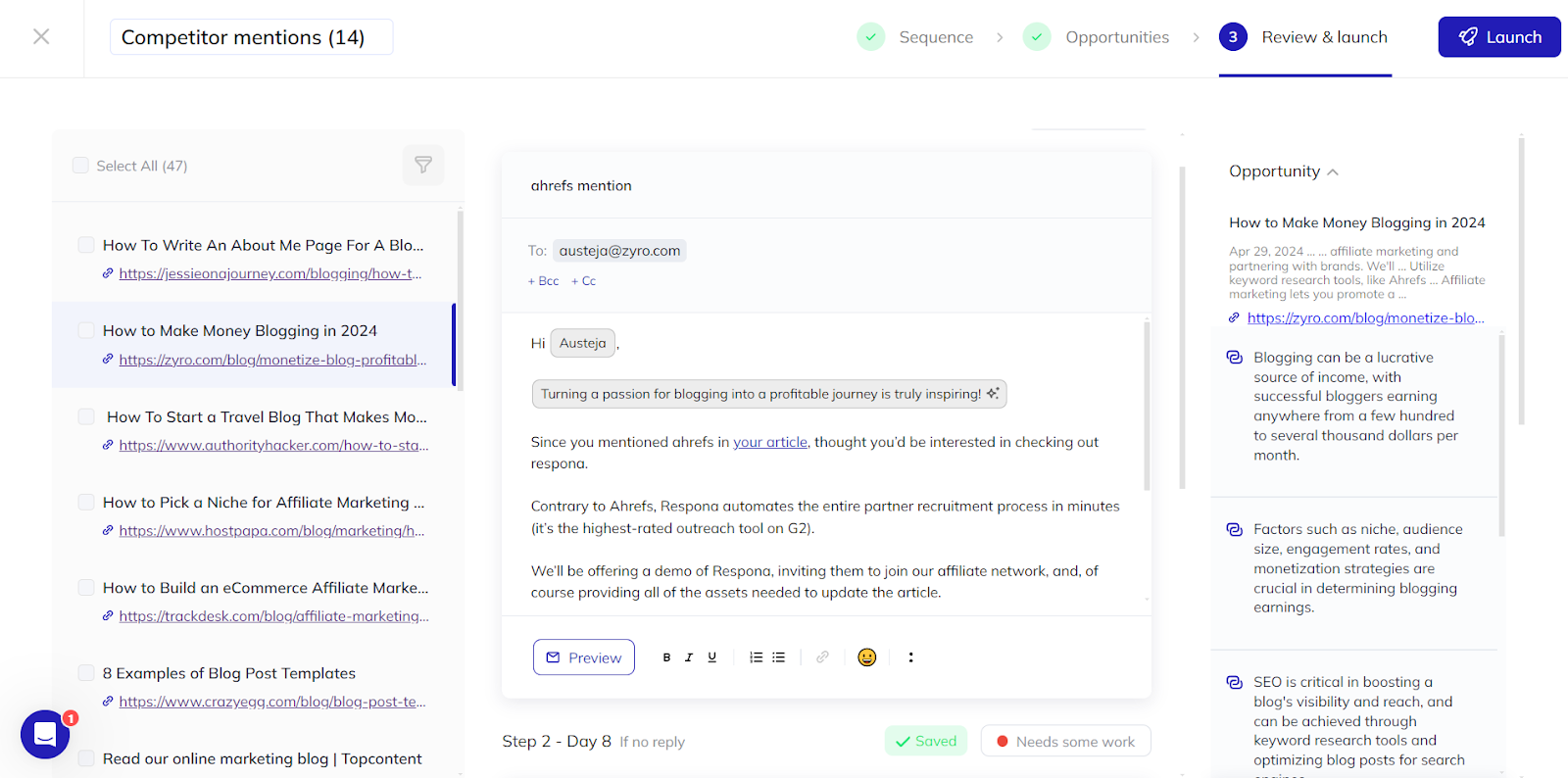
Here, Respona auto-fills in the details, including names of your prospects along with any AI personalizations you may have added at Step 1.
Still, for best results, we recommend you to spend some time on manual edits.
Before sending your emails, Respona does a final check to make sure everything is personalized and you’re not reaching out to anyone on your blacklist.
Then, you can start the campaign, watch for replies and start getting those sweet, sweet citations!
Link building cheat sheet
Now Over to You
In conclusion, citation link building is a powerful tool for driving qualified traffic while boosting your search engine rankings at the same time.
And unstructured citations don’t even need to be on a business directory – it can be any relevant website.
Need help with your citation link building campaign?
Don’t hesitate to start your 14-day free trial with Respona to see how we can help.
Frequently Asked Questions (FAQ)
What is the difference between a citation and a backlink?
A citation is any mention of your business online, including your NAP (name, address, phone number).
A backlink is a link from another website to yours, which helps with SEO. Sometimes, a citation can also be a backlink.
Why are local citations important for my business?
Local citations help people find your business in local searches, like “restaurants near me.”
They also build trust and can improve your local search engine rankings.
What is NAP consistency, and why does it matter?
NAP business information consistency means having the same name, address, and phone number across all your online listings.
This helps search engines and customers recognize your business and avoid confusion.
Are all online citations equally valuable for local SEO?
No.
Citations on well-known, relevant websites are more valuable than those on low-quality or irrelevant sites.
Also, “dofollow” links pass more SEO value than “nofollow” links.
How do I find citation opportunities for my business?
Start by listing your business on major directories like Google Business Profile, Yelp, and Bing Places.
Then, look for niche or local directories relevant to your industry and location. You can also use tools or advanced search operators to find more opportunities.
